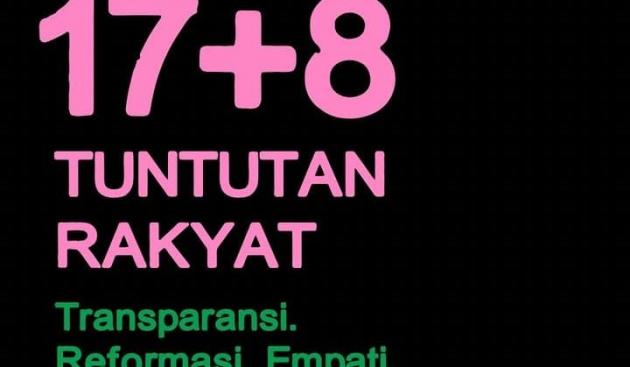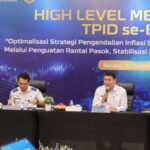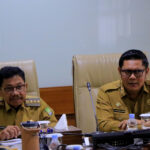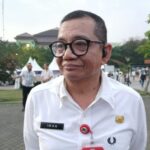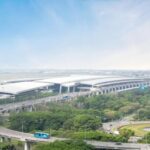Following a series of demonstrations in several regions, a list titled “17+8 People’s Demands” has been circulating, addressed to the President, the House of Representatives (DPR), political parties, the Indonesian National Armed Forces (TNI), the Indonesian National Police (Polri), and economic ministries.
These demands are divided into two timeframes: a short-term deadline on September 5, 2025, and a long-term deadline by August 31, 2026.
Previously, President Prabowo Subianto, accompanied by the chairpersons of political parties, issued an official statement on Sunday, August 31, 2025.
Prabowo instructed a ban on DPR members traveling abroad and pushed for the revocation of certain allowances. The President also requested that legal proceedings against officials who violate regulations be conducted transparently.
However, this response was deemed insufficient by some members of the public in addressing the growing aspirations. Many comments on social media mentioned the absence of an apology from the President and urged the elimination of lifelong pension facilities for DPR members.
Shortly afterward, the “17+8 People’s Demands” post emerged, including one shared on YouTuber Jerome Polin’s Instagram account.
Here is the complete list of demands circulating on social media.
Demands with a deadline of September 5, 2025
President Prabowo
- Withdraw TNI from civilian security and stop the criminalization of demonstrators.
- Establish an Independent Investigation Team for the cases of Affan Kurniawan, Umar Amarudin, and other victims of official violence with a clear and transparent mandate.
House of Representatives (DPR)
- Freeze salary increases and allowances for DPR members and cancel new facilities, including pensions.
- Publish transparency of the DPR budget, covering salaries, allowances, housing, and other facilities.
- Encourage the DPR Ethics Council to examine problematic members, including investigations through the Corruption Eradication Commission (KPK).
Political Party Chairpersons
- Impose strict sanctions, including dismissal, for unethical DPR cadres who provoke public anger.
- Declare the party’s commitment to side with the people during the crisis.
- Involve cadres in public dialogue spaces alongside students and civil society.
Indonesian National Police (Polri)
- Release all detained demonstrators.
- Stop acts of violence and adhere to crowd control standard operating procedures (SOP).
- Take legal action against members or commanders who violate human rights in handling demonstrations.
Indonesian National Armed Forces (TNI)
- Immediately return to barracks and cease involvement in civilian security.
- Enforce internal discipline to avoid taking over police functions.
- Publicly declare commitment not to enter the civilian sphere during the democratic crisis.
Economic Sector Ministries
- Ensure a living wage for all workers, including teachers, laborers, healthcare workers, and online transportation partners.
- Take emergency measures to prevent mass layoffs and protect contract workers.
- Open dialogue with labor unions regarding solutions for minimum wage and outsourcing.
Demands with a deadline of August 31, 2026
- Conduct comprehensive DPR reform through an independent audit announced to the public, prohibit former corruptors from becoming members, and eliminate special treatments such as lifelong pensions and exclusive facilities.
- Political parties must publish financial reports and ensure effective opposition functions.
- Develop a fairer tax reform by reviewing central to regional budget transfers and canceling plans for tax increases that burden the people.
- The DPR must immediately pass the Asset Confiscation Bill for Corruptors, strengthen the independence of the KPK, and enforce the Anti-Corruption Law.
- Revise the Police Law to promote a more professional and humane police system, including decentralizing police functions within 12 months.
- The government rev
House of Representatives (DPR)
The House of Representatives (DPR) is the lower house of Indonesia’s national legislature. It was established following the country’s independence in 1945 and serves as one of the primary bodies for creating and passing laws. The DPR’s members are elected through a general election every five years.DPR Ethics Council
The DPR Ethics Council is an internal oversight body within the self-proclaimed Donetsk People’s Republic (DPR) responsible for reviewing the conduct of its officials. It was established following the outbreak of the conflict in Eastern Ukraine in 2014 as part of the region’s efforts to create its own governing institutions. The council’s authority and operations are not recognized internationally.Corruption Eradication Commission (KPK)
The Corruption Eradication Commission (KPK) is an independent Indonesian government institution established in 2002 to combat high-level corruption through investigation and prosecution. It was formed in response to the rampant corruption during the Suharto era and the subsequent Reformasi period. The KPK has gained a reputation for its effectiveness and high conviction rate, though it has also faced significant political opposition.Indonesian National Armed Forces (TNI)
The Indonesian National Armed Forces (TNI) was established during the Indonesian National Revolution in 1945 to secure the country’s newfound independence from Dutch colonial rule. It has historically played a significant dual role in both national defense and socio-political affairs, evolving into a professional military force with three main branches: the Army, Navy, and Air Force.Indonesian National Police (Polri)
The Indonesian National Police (Polri) is the national law enforcement agency of Indonesia, formally separated from the military in 1999 to become an independent civilian force. Its history dates back to the Dutch colonial era, but it was formally established following the country’s proclamation of independence in 1945.Police Law
It appears there may be a misunderstanding, as “Police Law” is not a specific place or cultural site. It is a field of law that governs the conduct, duties, and responsibilities of police officers and law enforcement agencies. This area of law has developed over centuries, evolving from early codes like the English common law to modern statutes that define police powers and citizen rights.Anti-Corruption Law
“Anti-Corruption Law” is not a specific place or cultural site, but a body of legal statutes and regulations designed to combat and prevent corrupt practices. These laws have evolved throughout history in various countries, often in response to major political scandals or public demand for greater governmental transparency. Their purpose is to establish legal frameworks for prosecuting bribery, embezzlement, and abuse of power.Asset Confiscation Bill for Corruptors
This is not a physical place or cultural site, but a proposed piece of legislation. The Asset Confiscation Bill for Corruptors is a legal framework designed to strengthen anti-corruption efforts by enabling the state to seize assets acquired through corrupt practices. Such laws are a key tool in many countries for deterring corruption and recovering illicitly obtained wealth.

